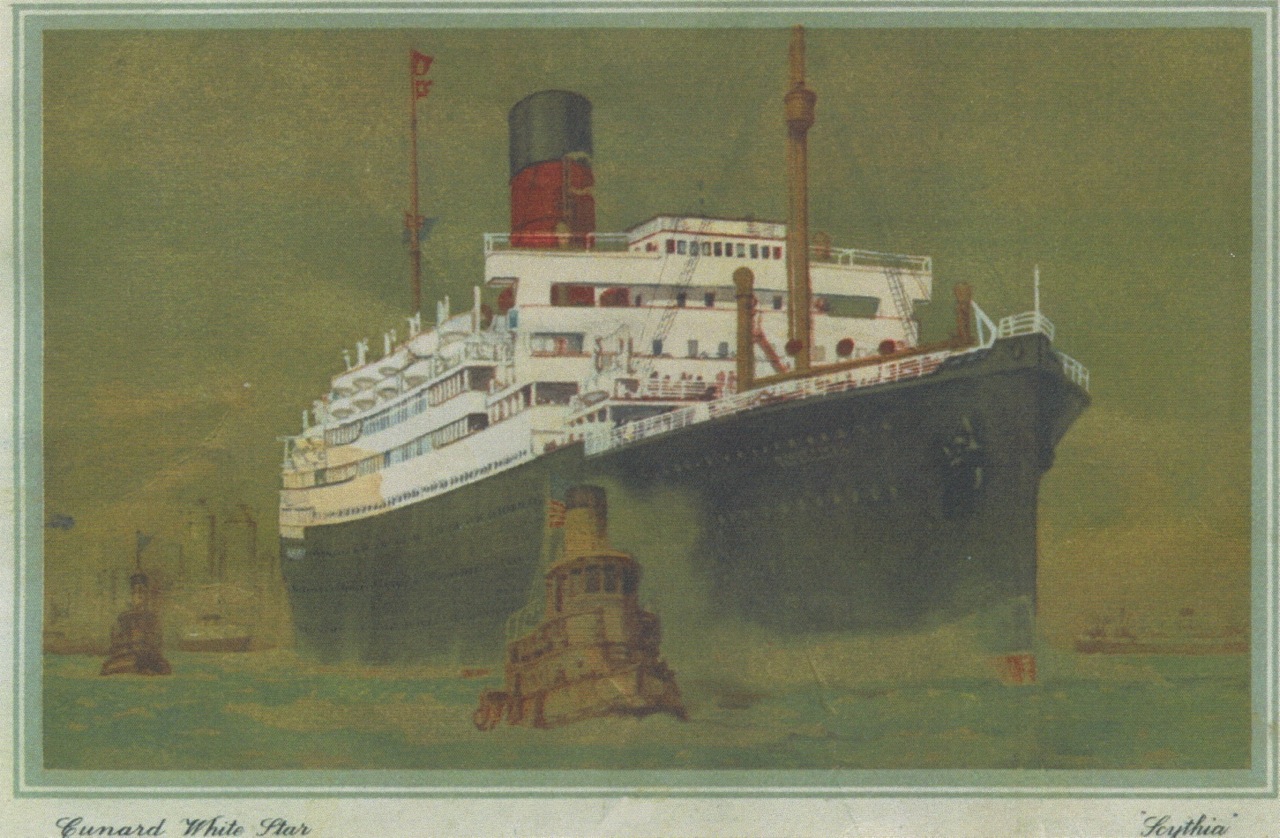
Brownies Girl
In Part 1 of this short “series,” we learned about two readers/contributors to The Moderate Voice (TMV) whose grandparents came to America – “a nation of immigrants” — to escape an oppressive government or religious intolerance.
There is another country that is often described as “a nation of immigrants,” albeit some call it “a country of settlers, colonists, aboriginals and immigrants.”
It happens to be “our neighbor to the North.”
But regardless of where the emphasis is placed in the quote above, it is an undeniable fact that Canada has always welcomed immigrants and refugees and has evolved into a great nation, rich and varied in culture, because of contributions made by the newcomers.
TMV is pleased to have as one of its faithful readers, a Canadian whose family’s immigration background is very similar to that of several other TMV readers and authors.
However, Brownies Girl’s (“BG’s”) family immigration story spans both the United States and Canada.
BG was only 18 months old when she and her mother boarded the Scythia II in Liverpool (lead photo) in March 1946 and sailed for Halifax, Nova Scotia.
BG’s Swiss-German mother, Elisabetta, was 28 and excited about starting a new life in a new country. Having spent World War II in England as a nanny and barmaid, her English was perfect.
The photo below of BG and her mother was taken in Liverpool a few days before embarking on the journey that would take them to North America.
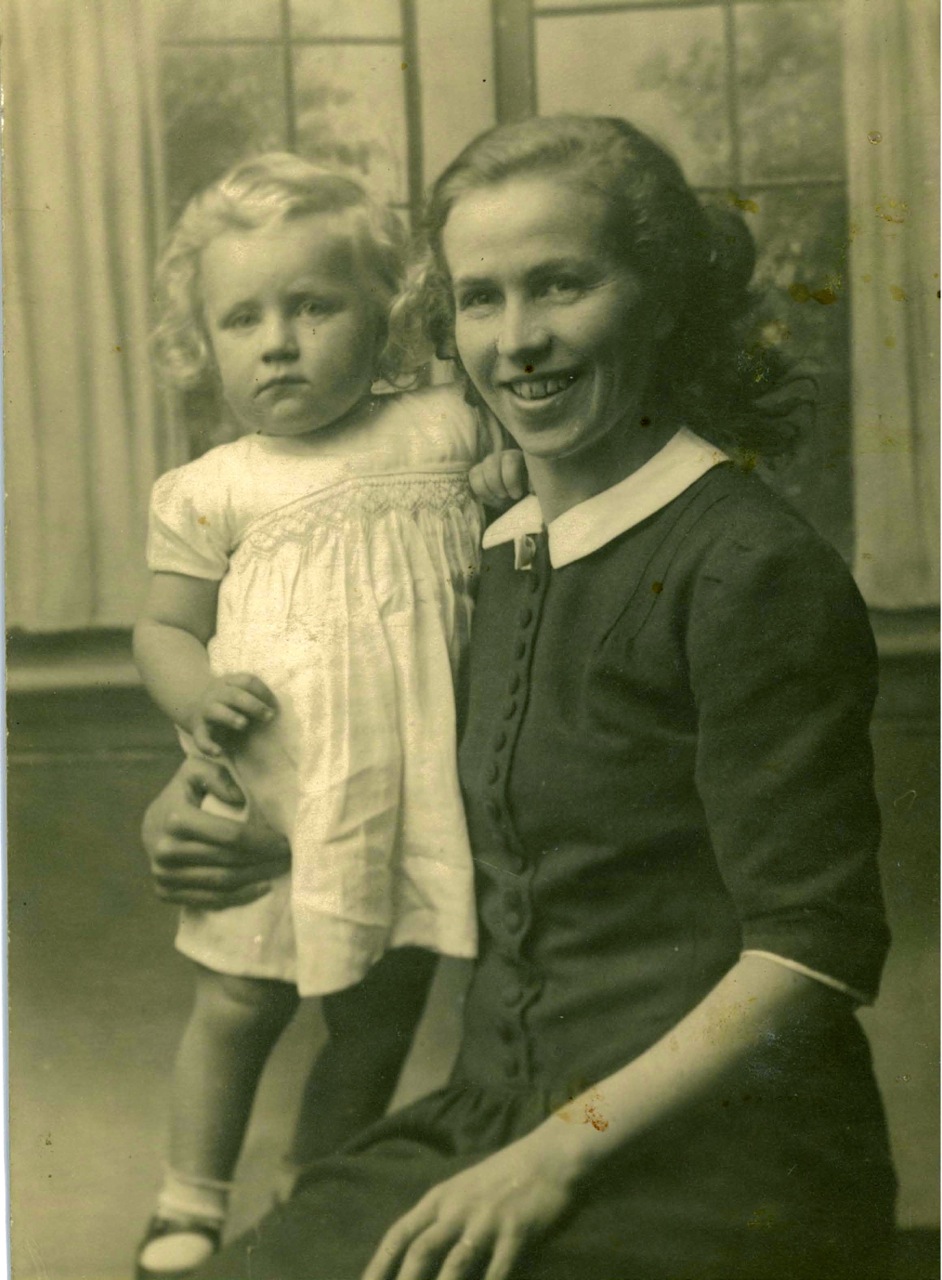
BG and her mother arrived at Canada Immigration – Pier 21 in Halifax (below), on March 26, 1946. Between 1945 and 1950, Pier 21 welcomed over 50,000 war brides and 20,000 children to Canada.
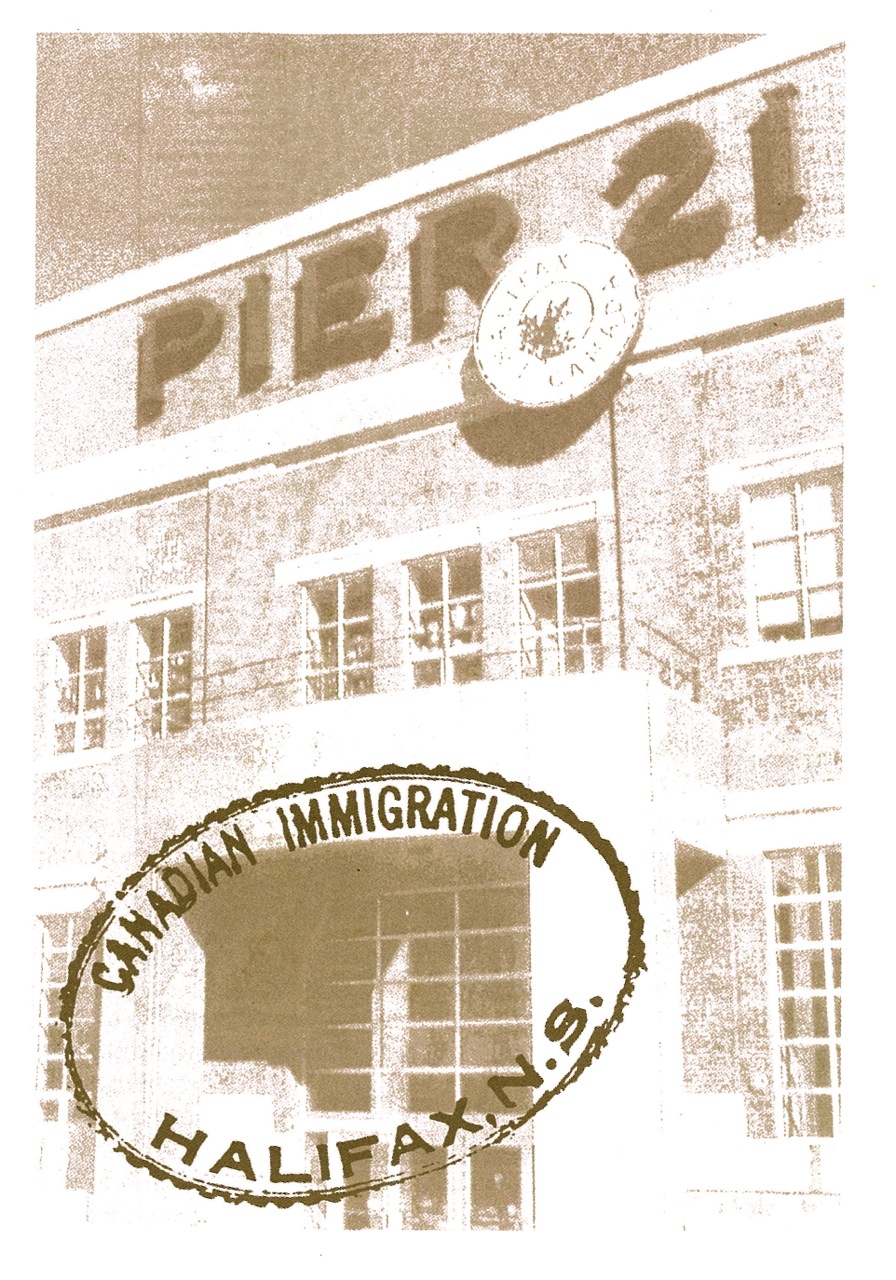
On arrival, they boarded a rickety CPR (Canadian Pacific Railway)* train to London, Ontario, to meet up with BG’s father who had returned a bit earlier to Canada after serving in England with the Canadian Army (More on him, later). After finding a place to settle down, there followed 12 years of farming in southwestern Ontario — along with 6 more children, all boys.
BG’s paternal grandparents, on the other hand, emigrated separately from Malmo, Sweden, entering the United States at Ellis Island in the late 1890s.
Grandfather Axel headed to Chicago for work in the slaughter houses. Five years later, he met Matilda, from Malmo. They married and moved to Amery, Wisconsin, to farm. A few years later, Axel and Matilda returned to Chicago. Axel went to work as a conductor on the Illinois Central Rail.
In Chicago, Arnold — BG’s future father — was born. He worked there in the 30s at various jobs, but when war broke out in Europe, he decided to enlist. Since the United States was not yet at war, Arnold opted to join the Canadian Armed Forces.
Crossing into Canada in early 1940, he enlisted in London, Ontario, and was shipped to England where he served at Aldershot Garrison in Hampshire, and trained to install communication lines in France, Belgium and the Netherlands.
It was near Aldershot, in 1943, that Arnold met Elisabetta and where, a year later, they married and BG was their first-born. In 1946, Canadian soldiers headed home on troop ships. BG and her mother followed shortly.
And that is how the young daughter of a Swiss war bride and an American father in the Canadian Army ended up as Canucks in a country that is also, like the U.S., a certified “melting pot.”
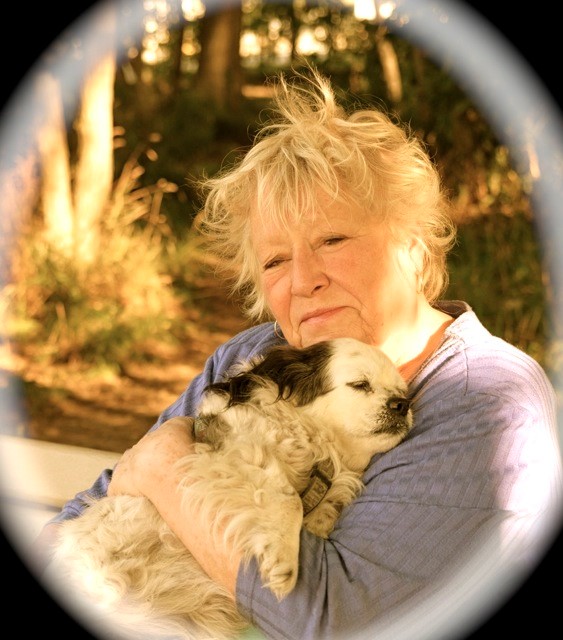
Brownies Girl became a Canadian citizen in 1968. She lives in Toronto where, for the last 35 years, she’s earned her living as a freelance writer and video producer. (And occasional barmaid, just like her mom was, way back.) Addicted to rescuing homeless dogs that nobody else wants, she is now retired and has two: Sophie, a Shi-Tzu/King Charles spaniel cross, and Ramsey, a “Heinz 57,” rescued from the shores of James Bay in North Ontario. BG also has a 16-year-old calico cat named Mayday who just showed up on May 1st, 2002, and stayed.
BG vividly recalls the immortal words that mean so much to “us,” immigrants and descendants of immigrants, words which got some of us to start reflecting about our roots:
“Give me your tired, your poor,
Your huddled masses yearning to breathe free,
The wretched refuse of your teeming shore.
Send these, the homeless, tempest-tossed to me,
I lift my lamp beside the golden door!”
* During World War II, CPR was much more than a “railway.” Canadian Pacific Railway: “On land, CPR moved 307 million tons of freight and 86 million passengers, including 280,000 military personnel. At sea 22 CPR ships went to war where 12 of them were sunk. In the air, CPR pioneered the ‘Atlantic Bridge’ – a massive undertaking that saw the transatlantic ferrying of bombers from Canada to Britain.”
~.~
Joe Gandelman
While Joe Gandelman, TMV’s Editor-in-Chief, does not recall every detail of his family’s immigration background, he knows that both grandfathers came from Russia and that one grandmother immigrated from Lithuania and the other from Poland.
Joe was told many years later that his grandfather, Abraham Ravinsky, and others in the Russian village where he lived, were the victims of a “pogrom” (“a violent riot aimed at the massacre or persecution of an ethnic or religious group, particularly a riot aimed at the massacre or persecution of Jews.”) and how he fought valiantly to defend his village.
Joe also remembers his grandfather – who in his later years looked like Spencer Tracy — periodically showing him and his sister photos in an album from his life in Communist Russia. Pointing to almost every man, woman and child in family group pictures, he would say repeatedly, “Killed by Hitler, killed by Hitler.”
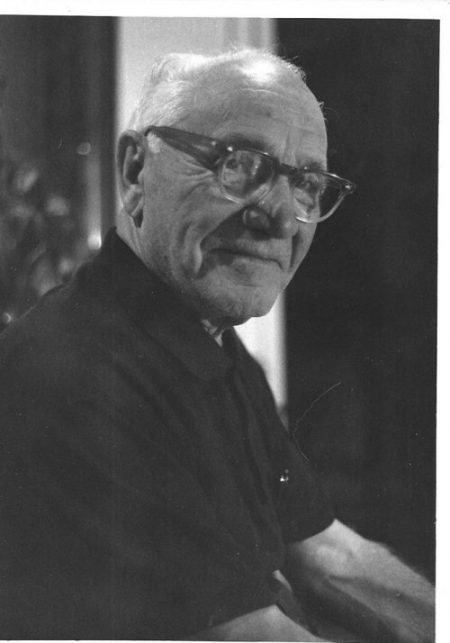
Joe and others from his family in the U.S. still stay in touch with people from the “old country.” In one case, Joe’s aunt, Ruth Magid, was instrumental in getting a cousin, Arkady Zak, out of Russia to Israel, where Joe visited him in 1973 at his kibbutz.
Years later, Arkady moved to Canada, married and had two sons.
Invited to the California wedding of one of his sons, Joe once again met Arkady, a man who, because of both looks and mannerisms, reminds him so much of his grandfather.
At the wedding, a teary-eyed Arkady profusely thanked Joe’s family, the Ravinskys/Magids, for helping him leave the hell that was the Soviet Union.
It is no wonder that one of Joe’s passions at TMV is to highlight the dangers of authoritarianism, prejudice, discrimination and racism.
Joe points to the book, “A Clear and Present Danger,” frequently reviewed and referred to at TMV, and one to which Dr. Clarissa Pinkola Estés, The Moderate Voice’s Managing Editor, made significant contributions.
A daughter to two immigrant families, one family of Mexican, Spanish and Indian descent and the other a Magyar refugee family, there is probably no one better at TMV to tell “our” immigration story than Dr. Estés, a renowned and prolific author and, above all, a “story teller.”
We hope to be able to share her story soon.
















